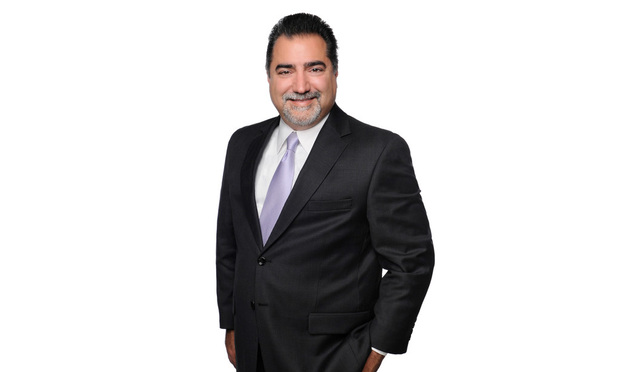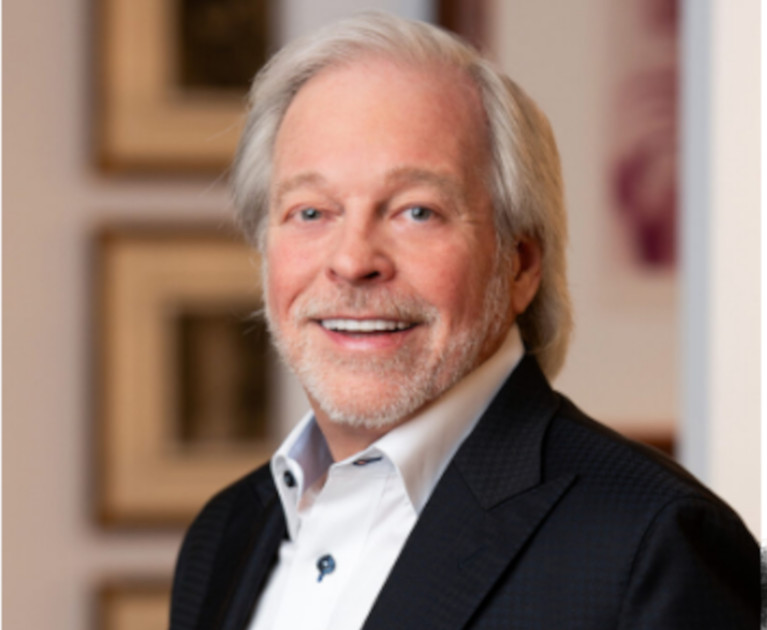Grab a Drink While Social Distancing? Attorney Talks Marriage of Irreconcilable Concepts
A Coral Gables hospitality attorney who is helping retailers stay afloat during the coronavirus economic crisis says the next step is to reconcile the opposing concepts of social distancing and profits.
May 22, 2020 at 10:56 AM
6 minute read
 Robert F. Lewis co-founder of Spiritus Law. Courtesy photo
Robert F. Lewis co-founder of Spiritus Law. Courtesy photo
South Florida's slowly reopening hospitality industry faces the dichotomy of turning a profit amid mandates for venues to remain well-below capacity during the coronavirus pandemic.
Attorney Robert Lewis says it can be done, and he should know.
Lewis is a hospitality and alcohol attorney who worked for Big Law, from Holland & Knight to Akerman and Greenspoon Marder, before co-founding his own Spiritus Law with his wife, Marbet Lewis, in Coral Gables.
"The issue is that right now social distancing is a challenge the industry is going to have to deal with on an ongoing basis," Lewis said.
South Florida's restaurants and bars are reconfiguring to abide by the 50% capacity rule by expanding onto sidewalks and into parking lots, reworking menus, and expanding takeout and delivery. Lewis also helped many clients revise leases and navigate social-distancing rules.
It's "this intersection of maintaining social distancing but doing everything possible so they can maximize profitability to ensure they can survive," he said. "It's going to be more of a case-by-case basis based on the physical configuration of each restaurant."
Businesses are creative and resilient if they weathered the Great Recession, Lewis noted. There's something else keeping the alcohol industry afloat now, and that's demand.
"One of the things is in good times people drink and in bad times people drink," Lewis said.
He is guiding businesses on reopening as South Florida gradually lifts shelter-at-home regulations. This is the next chapter after helping clients survive the economic standstill caused by closure orders.
Bars and restaurants may have been dark for over two months, but that didn't mean less legal work, just a different type of work.
In a thriving economy, Lewis is busy obtaining liquor licenses, working on legislation that benefits clients and negotiating on behalf of import, manufacturing, wholesale and sports arena clients. The coronavirus shifted Lewis' focus to negotiating rent and loan forbearance for Miami-Dade County venues and helping fill out Paycheck Protection Program forms.
"Many clients found the form sort of confusing and how to calculate the loan amount and what specific amounts would be forgiven so the loan really functions like a grant," he said. "And how to apply through their banks and some of the challenges for our clients who may not have strong banking relationships. It's been a challenge to fill out the applications correctly and to secure the loans from the Small Business Administration."
Florida bars were in danger of losing their liquor licenses. The state caps licenses based on a county's population, meaning a new bar either has to win a lottery or buy a license from an existing bar unless the county's population grows. Those that need a quota license take out loans to cover the cost and pledge the license as collateral to the lender, but no sales means no money for loan payments.
A license price could be $170,000 in Miami-Dade and as much as $500,000 in Monroe County as it's based on supply and demand, Lewis said.
Lewis helped work out loan forbearance for a Homestead bar owner whose lender sought to foreclose on the license as the bar couldn't make payments.
"That's sort of a unique issue with respect to our clients that we have to deal with," he said.
Big and Small
Lewis' clients include big and small names.
There's the mom-and-pop Homestead bar, and then there are his Miami Heat and Brightline clients.
He represented the Brightline passenger train, soon to be renamed Virgin Trains USA, in securing licenses and permits to serve alcohol at stations and on the trains. Brightline stops in downtown Miami, Fort Lauderdale and West Palm Beach and is building an extension to Orlando International Airport. He helped draft related state legislation.
Lewis and his team at Spiritus represent the Miami Heat, which has food and beverage concepts. The attorneys review agreements and negotiate on the team's behalf.
Career Path
Lewis didn't envision his legal career because he didn't set out to be an attorney. After obtaining his bachelor's degree in criminal justice from Florida Atlantic University, he worked as a police officer and did some undercover work as a special agent with the Florida Division of Alcoholic Beverages and Tobacco in the early to mid-1990s.
The division enforces state and fair trade practices for alcohol and tobacco sales, manufacturing and distribution, and it's where many hospitality attorneys get their start.
Lewis also worked on alcohol-related crimes, white-collar crime such as money laundering by licensed businesses, and investigations of tied-house marketing law violations. This was no 9-5 job.
"You kind of work whenever and wherever an investigation takes you. I remember times where I was working potentially 24 hours a day surveillance or conducting an investigation or being undercover in order to investigate potential crimes regarding bars and business owners and infiltrating different narcotic investigations," he said. "It was a very exciting time in my life."
Lewis, who still holds a law enforcement officer certificate, opted for law school after suffering detached retinas in a car crash.
"If it wasn't for that injury, I probably would have stayed in law enforcement," he said.
He planned on becoming a hospitality attorney, building on his experience, knowledge and contacts.
As he and Marbet Lewis struck out on their own with Spiritus Law three years ago, they brought with them what they learned from Big Law without the administrative formalities and bureaucracy common in big firms.
A smaller firm is flexible and able to change along with clients, which has been helpful in the COVID-19 pandemic.
"Our practice during the pandemic has had to pivot right along with our clients. It's helping clients stay in business and pivot in a sense of developing their own infrastructure to develop from an on-premise-primarily business to just an off-premise focusing on deliveries and curbside pickup and redo their menu and helping them guide through these new regulatory hurdles," Lewis said.
The goal is to figure out a way to marry two seemingly opposite concepts, he added.
"A core issue is to help integrate the requirement for social distancing with profitable business operations, which has pretty much been viewed as completely contradictory to one another," he said. "It's about merging these two concepts in a very resilient industry to help the industry survive and manage with the new normal."
Born: New York, 1969
Children: Morgan, Marion and Robert Lewis Jr.
Spouse: Marbet Lewis
Education: University of Miami, J.D., 1997; Florida Atlantic University, B.A., 1989
Experience: Partner, Spiritus Law, 2017-present; Chair of alcohol industry group, Greenspoon Marder, 2015-2017; Chair of alcohol industry group, Akerman, 2013-2015; Shareholder, GrayRobinson, 2005-2013; Partner, Holland & Knight, 2000-2005; Associate, Ruden McClosky, 1998-2000; Special agent, Florida Division of Alcoholic Beverages and Tobacco, 1990-1994
This content has been archived. It is available through our partners, LexisNexis® and Bloomberg Law.
To view this content, please continue to their sites.
Not a Lexis Subscriber?
Subscribe Now
Not a Bloomberg Law Subscriber?
Subscribe Now
NOT FOR REPRINT
© 2025 ALM Global, LLC, All Rights Reserved. Request academic re-use from www.copyright.com. All other uses, submit a request to [email protected]. For more information visit Asset & Logo Licensing.
You Might Like
View All
Rogge Dunn Represents Florida Trucking Firm in Civil RICO Suit Against Worldwide Express
4 minute read
Federal Judge Sides With FedEx in Arbitration Dispute Over 'Transportation Worker' Definition
5 minute read
South Florida Lawyer Gears to Fight Walmart Over Shopper's Death

Trending Stories
- 1Reviewing Judge Merchan's Unconditional Discharge
- 2With New Civil Jury Selection Rule, Litigants Should Carefully Weigh Waiver Risks
- 3Young Lawyers Become Old(er) Lawyers
- 4Caught In the In Between: A Legal Roadmap for the Sandwich Generation
- 5Top 10 Developments, Lessons, and Reminders of 2024
Who Got The Work
J. Brugh Lower of Gibbons has entered an appearance for industrial equipment supplier Devco Corporation in a pending trademark infringement lawsuit. The suit, accusing the defendant of selling knock-off Graco products, was filed Dec. 18 in New Jersey District Court by Rivkin Radler on behalf of Graco Inc. and Graco Minnesota. The case, assigned to U.S. District Judge Zahid N. Quraishi, is 3:24-cv-11294, Graco Inc. et al v. Devco Corporation.
Who Got The Work
Rebecca Maller-Stein and Kent A. Yalowitz of Arnold & Porter Kaye Scholer have entered their appearances for Hanaco Venture Capital and its executives, Lior Prosor and David Frankel, in a pending securities lawsuit. The action, filed on Dec. 24 in New York Southern District Court by Zell, Aron & Co. on behalf of Goldeneye Advisors, accuses the defendants of negligently and fraudulently managing the plaintiff's $1 million investment. The case, assigned to U.S. District Judge Vernon S. Broderick, is 1:24-cv-09918, Goldeneye Advisors, LLC v. Hanaco Venture Capital, Ltd. et al.
Who Got The Work
Attorneys from A&O Shearman has stepped in as defense counsel for Toronto-Dominion Bank and other defendants in a pending securities class action. The suit, filed Dec. 11 in New York Southern District Court by Bleichmar Fonti & Auld, accuses the defendants of concealing the bank's 'pervasive' deficiencies in regards to its compliance with the Bank Secrecy Act and the quality of its anti-money laundering controls. The case, assigned to U.S. District Judge Arun Subramanian, is 1:24-cv-09445, Gonzalez v. The Toronto-Dominion Bank et al.
Who Got The Work
Crown Castle International, a Pennsylvania company providing shared communications infrastructure, has turned to Luke D. Wolf of Gordon Rees Scully Mansukhani to fend off a pending breach-of-contract lawsuit. The court action, filed Nov. 25 in Michigan Eastern District Court by Hooper Hathaway PC on behalf of The Town Residences LLC, accuses Crown Castle of failing to transfer approximately $30,000 in utility payments from T-Mobile in breach of a roof-top lease and assignment agreement. The case, assigned to U.S. District Judge Susan K. Declercq, is 2:24-cv-13131, The Town Residences LLC v. T-Mobile US, Inc. et al.
Who Got The Work
Wilfred P. Coronato and Daniel M. Schwartz of McCarter & English have stepped in as defense counsel to Electrolux Home Products Inc. in a pending product liability lawsuit. The court action, filed Nov. 26 in New York Eastern District Court by Poulos Lopiccolo PC and Nagel Rice LLP on behalf of David Stern, alleges that the defendant's refrigerators’ drawers and shelving repeatedly break and fall apart within months after purchase. The case, assigned to U.S. District Judge Joan M. Azrack, is 2:24-cv-08204, Stern v. Electrolux Home Products, Inc.
Featured Firms
Law Offices of Gary Martin Hays & Associates, P.C.
(470) 294-1674
Law Offices of Mark E. Salomone
(857) 444-6468
Smith & Hassler
(713) 739-1250






